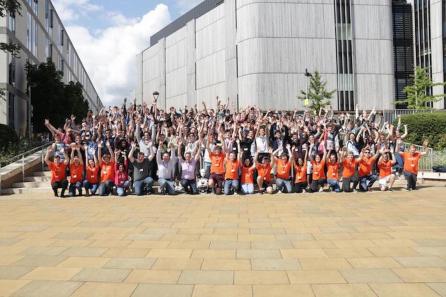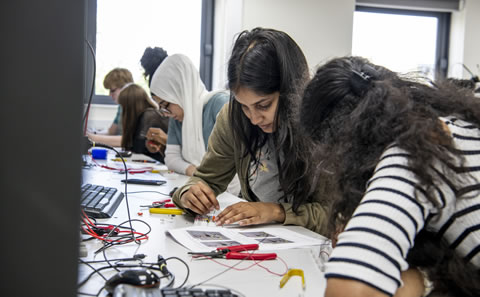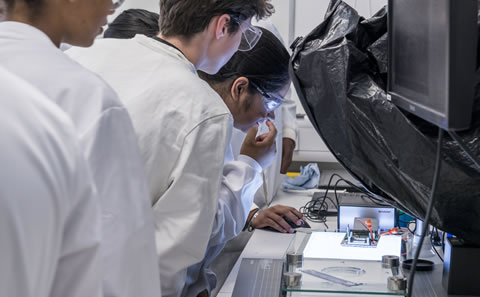
About our courses
These one-week residential courses will enable you to experience either Biomedical Electronic Engineering or Electronics and Computer Science.

These one-week residential courses will enable you to experience either Biomedical Electronic Engineering or Electronics and Computer Science.

If you love maths, technology or science, this course will enable you to apply your skills to computer science and electronic engineering. You will work on a variety of challenges, including investigating and designing solutions to real-world problems in our state-of-the-art undergraduate labs.
On the course, you will explore the domains of artificial intelligence, computer vision and cybersecurity, developing your programming skills and applying them to real problems. You will also simulate, prototype and solder together electronic circuits built from logic gates - the basic building blocks for all digital electonic systems, including computer processors - as well as learn about how complex chips are fabricated in our nanofabrication cleanrooms.
We accept that our best-laid plans may have to change as a result of the ongoing pandemic. We are committed to running a safe and enjoyable course.
The time I have spent in the labs has given me a lot of valuable skills and made me more sure of myself in regards to the practical aspects of the course.
We use computers in every area of our lives; but getting computers to do what we want them to do requires specialist expertise and knowledge. Computer science is a problem solving science, modelling and analysing problems and providing solutions in engineering, health care, business and industry.
Electronics is the use of electricity to communicate, compute and control the world around us – from the processor in your phone, to the intelligent prosthetic arms that allow amputees to lead a normal life. Electronics is an engineering discipline and is underpinned by mathematics and physics. These are applied to designing and inventing cutting-edge products and systems.

Learn about the new and innovative health and wellbeing technologies that biomedical engineers create, from AI assisted diagnostics & digital health systems, to rehabilitation technologies and implantable sensors. We will teach you how to design and construct a biosensor and analyse its performance, collect & analyse your own muscle movement signals using neural networks, and build a heart rate (ECG) sensor. You will also learn about miniaturised “Lab-on-a-Chip” diagnostics and smart signal analysis for wearable healthcare.*
We accept that our best-laid plans may have to change as a result of the ongoing pandemic. We are committed to running a safe and enjoyable course.
Studying at Southampton has been a truly incredible experience – there are so many opportunities and facilities that you have access to.
Biomedical engineers design and create new technologies to solve medical and healthcare challenges created by an ageing population. Within this field, the intersection of state-of-the-art electronics and biomedicine is leading a revolution in new digital health solutions, intelligent home monitoring and smart biosensors.